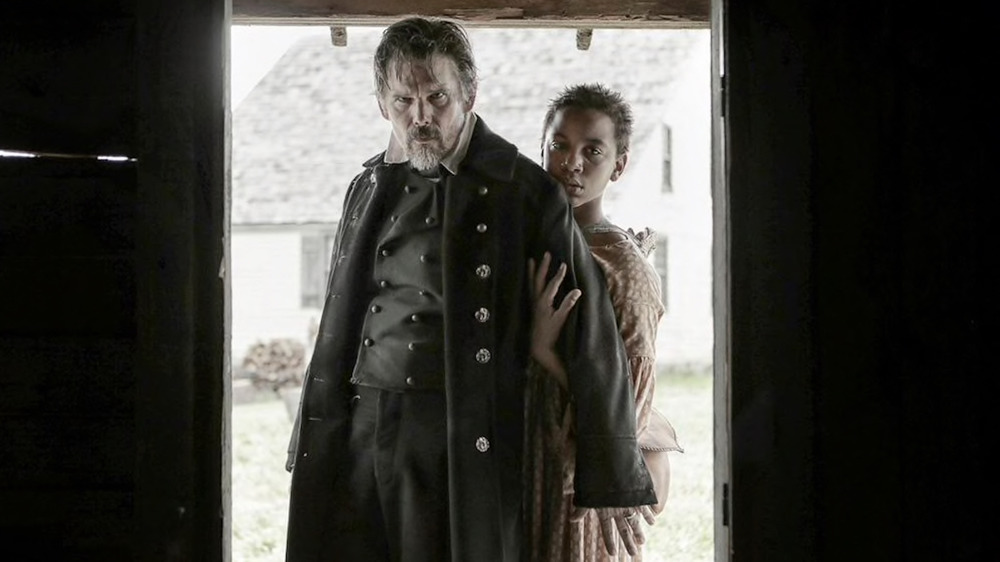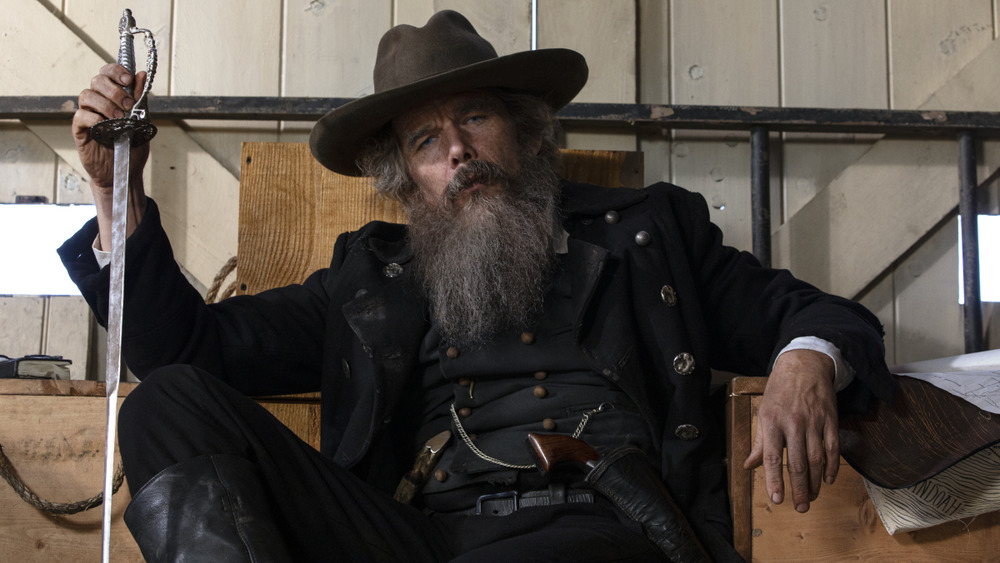Is The Good Lord Bird A True Story?
While 2020 continues to be one of the most turbulent years on record, it's also proven to be a pretty solid one in terms of serialized television, with new seasons of The Umbrella Academy, Fargo, Yellowstone, and What We Do in the Shadows more than delivering on the promises of seasons past. Meanwhile, fresh trips like The Queen's Gambit, Perry Mason, Devs, and The Outsider have become worthy additions to an increasingly jam-packed small screen landscape.
With so many new ventures arriving on networks and streamers alike, it's been almost impossible to keep up with everything. That includes the release of Showtime's daring historical drama The Good Lord Bird, which is undoubtedly one of 2020's most overlooked gems. Based on the award-winning novel of the same name from James McBride, The Good Lord Bird follows the tale of a Kansas slave named Henry "Onion" Shackleford who, in the days before the American Civil War, encounters radical abolitionist John Brown (a rarely better Ethan Hawke), and joins his family of anti-slavery freedom fighters.
Perceptive, poignant, and sometimes laugh-out-loud funny, The Good Lord Bird recently wrapped an electrifying seven-episode run on the extended cable station with a brutal, emotionally bruising finale. As the story unfolded, however, those who were watching couldn't help but notice the period-drama was told with piercing authenticity. The final episodes of The Good Lord Bird were, of course, set amid the calamitous 1859 sacking of the U.S. armory outpost in Harper's Ferry, Virginia, leading many fans to wonder if the wild, Western-tinged story they were watching wasn't more fact than fiction.
The short answer to that question is "not exactly," as The Good Lord Bird's source material is as much a work of fiction as its dress-wearing central character Onion.
The Good Lord Bird is a fictional work largely based on historical figures and events
It's important to place the word "historical" in front of "fiction" when describing The Good Lord Bird, though, because there's plenty of fact at play throughout. And even as Onion may not be a real historical figure, most of the characters populating the character's orbit are. Chief among them is Hawke's John Brown who, decidedly noble intentions aside, remains one of the more infamous figures in American history.
If you're not familiar with John Brown's story, The Good Lord Bird more than does justice to the man and his legend, including his involvement in "Bleeding Kansas" era of the American Midwest. John Brown was indeed a frequent player in the violent border clashes which occurred in the wake of the divisive Kansas-Nebraska Act of 1854, leading a guerrilla army bent on not just freeing but arming every enslaved person they could, and eventually coming to believe similar tactics could turn the tide in the slave-trading Southern states.
In fact, Brown intended to lead violent uprisings across the South by militarizing freed slaves armed with weapons claimed during the siege of Harper's Ferry. As it does in The Good Lord Bird, that siege ultimately failed, leading to the death of most of Brown's faction, and his own execution for treason. In the eyes of most historians, it also proved one of the key events that plunged the nation into civil war.
Yes, John Brown's life was every bit as crazy as it sounds, and every bit as intriguing as it's presented in The Good Lord Bird. And yes, Hawke's grand-standing portrayal of the figure is more than worth the price of admission, particularly for anyone wary of cracking the pages of a legit history book to learn about him — though you really should read a couple of those books too.

